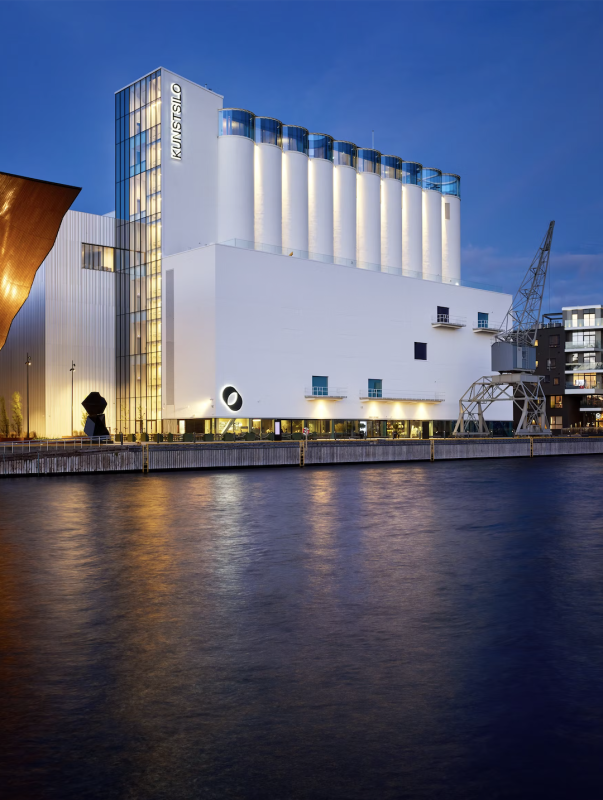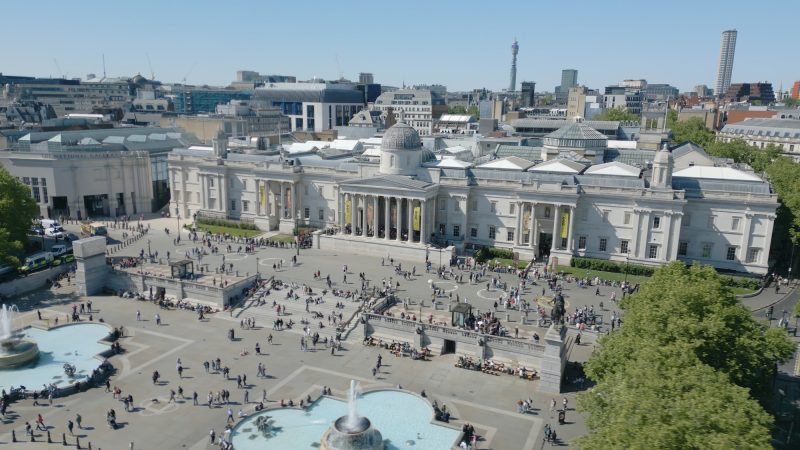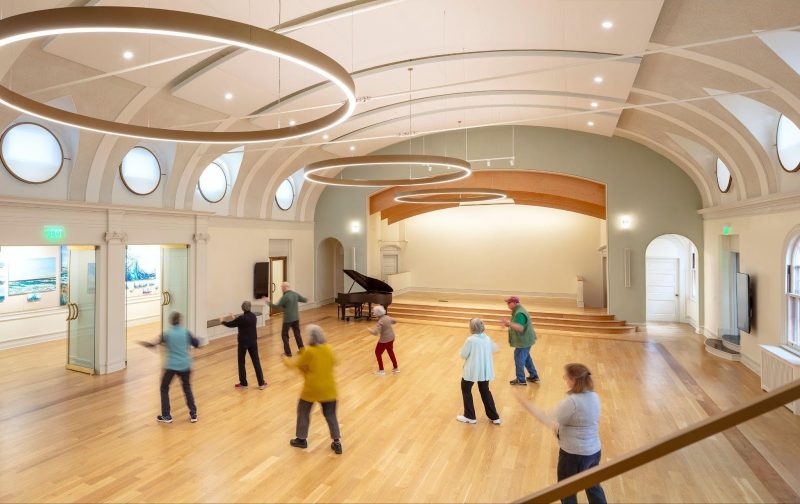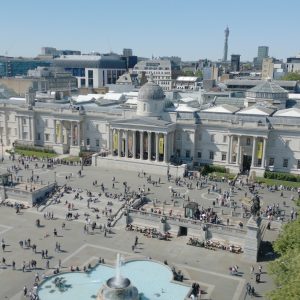‘The future of our society is the future of our cities— they are our greatest invention.’
Norman Foster
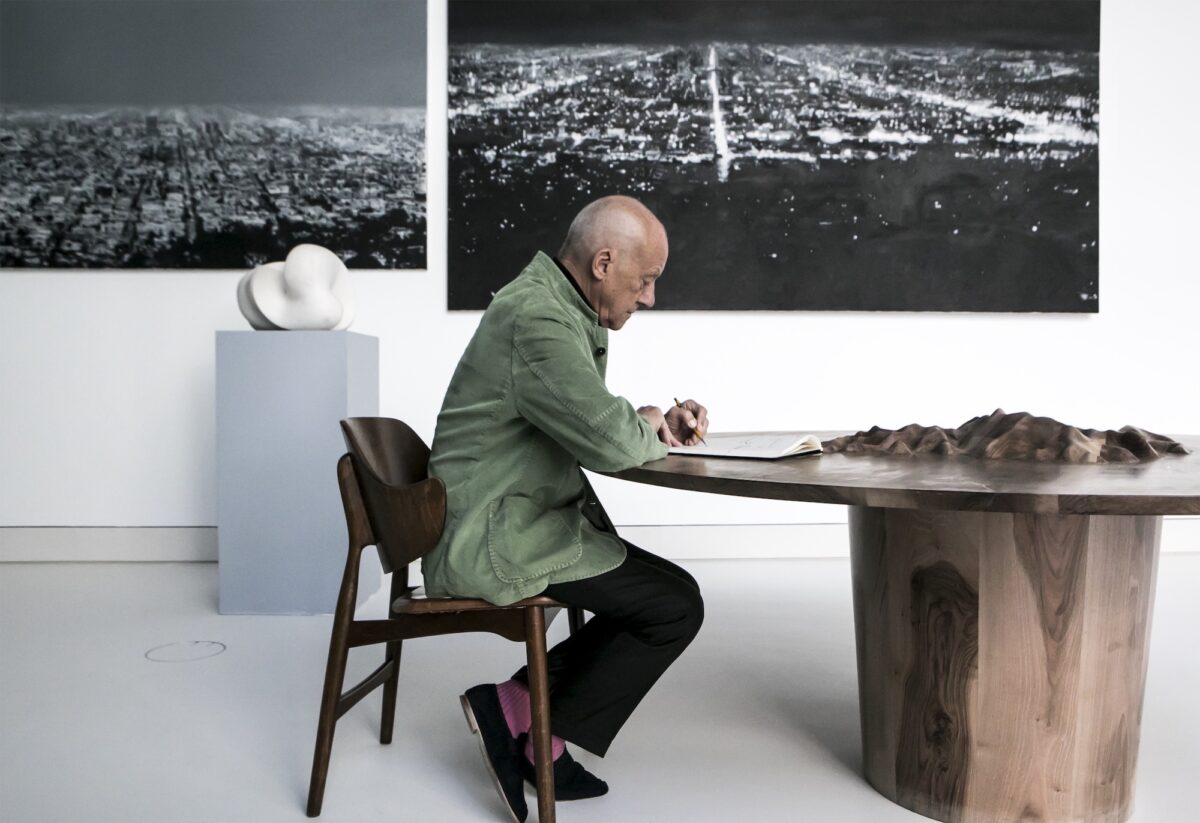
The Norman Foster Foundation presents the Norman Foster Institute’s inaugural Programme on Sustainable Cities in Madrid today 22nd January 2024 with a day-long event bringing together leading design practitioners, policymakers, health experts and city representatives. The programme aims to train scholars from different disciplines in the sustainable development of cities with strategies for the future.
The programme opens with an event moderated by Tim Stonor, Member of the Advisory Board, Norman Foster Foundation, Madrid, Spain; Managing Director, Space Syntax, London, United Kingdom, which provides insights and strategies for the current challenges facing cities, including architecture, city governance and climate change.
The first session features keynotes by Norman Foster, President, Norman Foster Foundation; Co-Director, Norman Foster Institute, Madrid, Spain; Advocate of the United Nations Forum of Mayors; Founder and Executive Chairman, Foster + Partners; Kent Larson, Norman Foster Institute Co-Director; Member of the Advisory Board, Norman Foster Foundation, Madrid, Spain, Director, City Science Group, Massachusetts Institute of Technology (MIT) Media Lab, Cambridge, MA, United States; Edgar Pieterse, Norman Foster Institute Provost; Founding Director, African Centre for Cities (ACC), University of Cape Town, Cape Town, South Africa; and Dava Newman, Norman Foster Institute Honorary Dean; Director, Massachusetts Institute of Technology (MIT) Media Lab, Cambridge, MA, United States. It also includes a panel discussion between all of these participants.
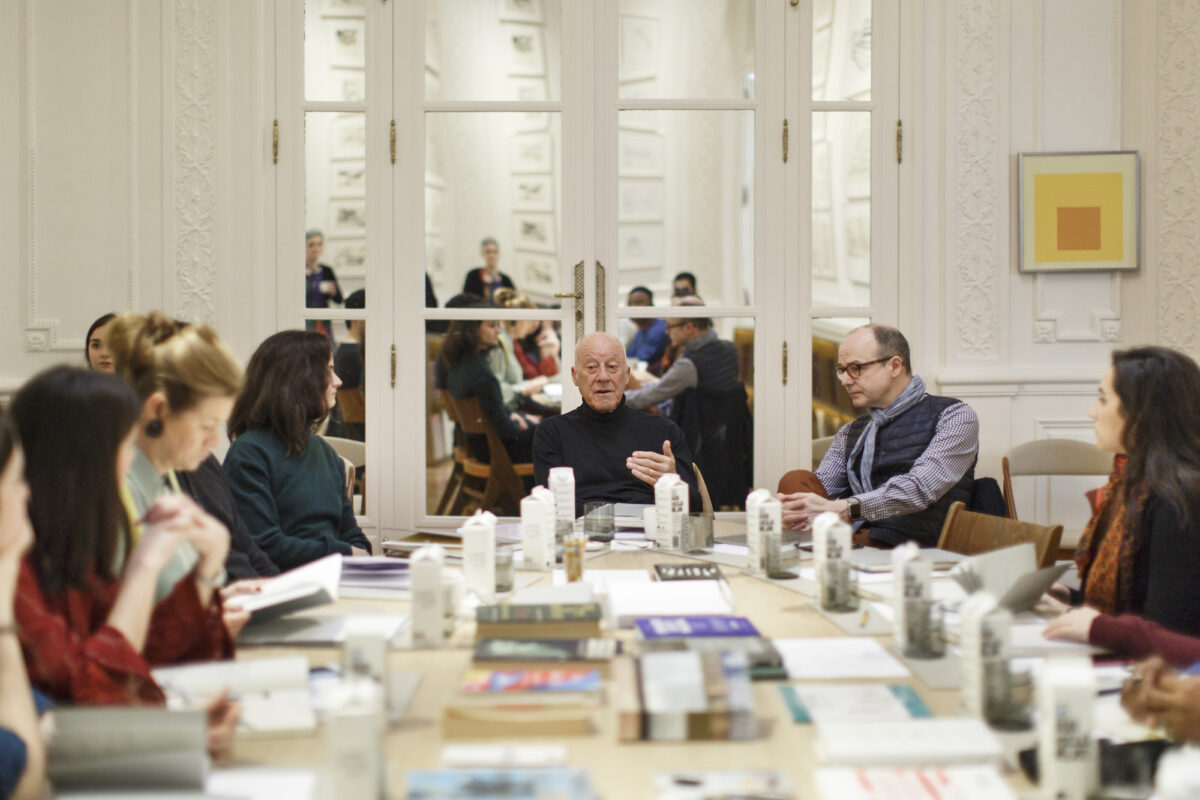
Following the panel, there will be keynote presentations by representatives of the three cities featured in the master’s programme: Dr. Georgios Stamtsis, President of the Athens Development and Destination Management Agency, Athens, Greece; Eider Inunciaga Serna, Department for Euskera, Public Services, Civic Engagement, Agenda 2030 and Internationalization, Bilbao, Spain; and Stefano Canti, Minister for the Territory, Environment, Agriculture and Civil Protection, San Marino.
The second session will include keynotes by Alejandro Aravena, Member of the Academic Council, Norman Foster Institute; Executive Director, ELEMENTAL; ELEMENTAL Copec Chair, Universidad Católica de Chile, Santiago, Chile; Jury Chair of the Pritzker Architecture Prize, Chicago, IL, United States; Member of the Advisory Board, Norman Foster Foundation, Madrid, Spain; Vishaan Chakrabarti, Member of the Academic Council, Norman Foster Institute; Honorary Trustee, Norman Foster Foundation, Madrid, Spain; Founder and Creative Director, Practice for Architecture and Urbanism (PAU), New York, NY, United States; and Beatriz Corredor, Member of the Norman Foster Institute Academic Council; Chairwoman, Redeia; Former Minister of Housing of Spain, Madrid, Spain. A panel discussion between Alejandro Aravena, Vishaan Chakrabarti and Beatriz Corredor will then take place.
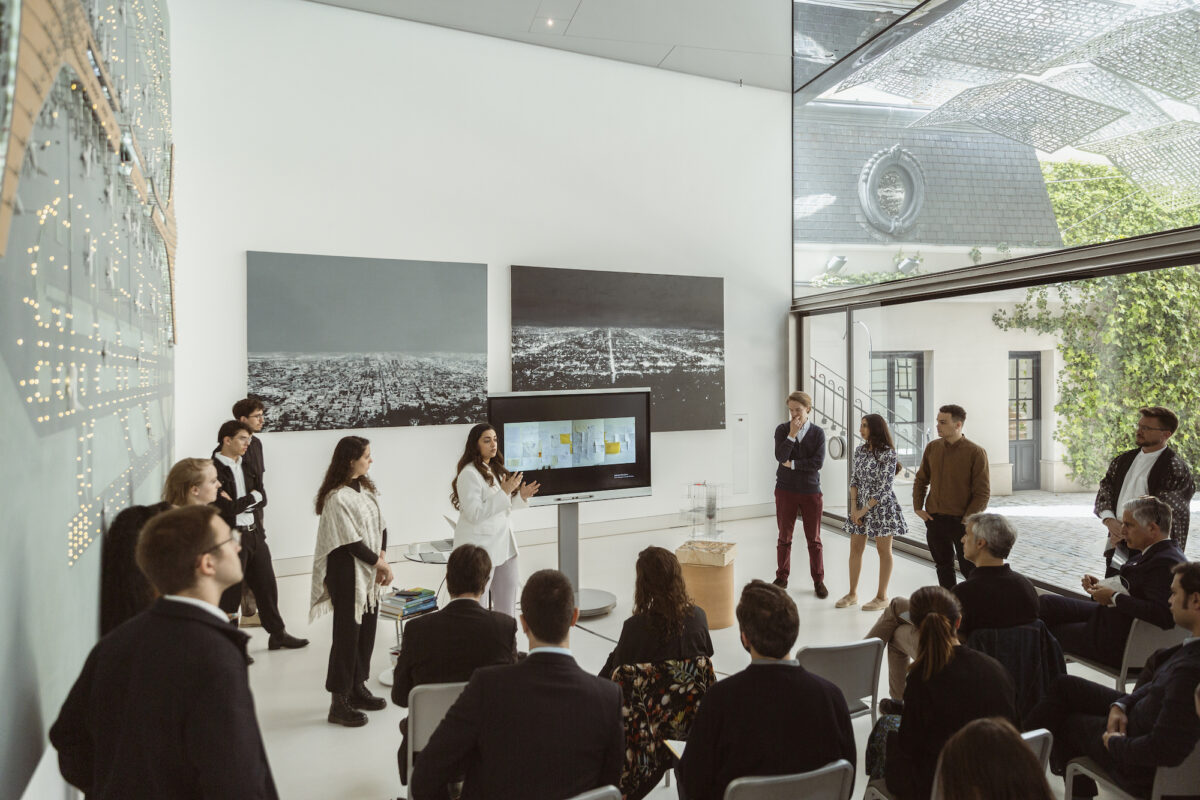
The final keynotes of the first session will be by Glyn Richards, Group Sustainability Director at Bupa, who will explore the huge opportunity that developing health-centred actions can play in the design of the cities of the future, not only to promote health and wellbeing of urban populations but also to address the climate crisis; and Bret Stephens, Journalist, Editor, and Columnist; The New York Times, New York, NY, United States.
Following the morning event, the Norman Foster Foundation will host the first public event of the Norman Foster Institute, the ‘Cities Beyond Earth’ Public Debates. The debates will explore the remarkable confluence of space colonies and the sustainability of our cities on Earth. As humanity increasingly ventures into the cosmos, the lessons learned from building and maintaining self-contained habitats beyond our planet hold immense relevance for the cities we inhabit today. Our world faces unprecedented challenges, from climate change to resource scarcity, and the urgency to create more resilient, sustainable urban environments has never been greater. By studying space colonies, we can gain critical insights into efficient resource management, closed-loop ecosystems, and innovative technologies that can be harnessed to improve the sustainability and resilience of our terrestrial cities to avert the collapse of our model to inhabit the Earth.
The debates will be moderated by Tim Stonor, Member of the Advisory Board, Norman Foster Foundation, Madrid, Spain; Managing Director, Space Syntax, London, United Kingdom, with an introduction by Norman Foster, President, Norman Foster Foundation; Co-Director, Norman Foster Institute, Madrid, Spain; Advocate of the United Nations Forum of Mayors; Founder and Executive Chairman, Foster + Partners, and keynotes and a debate between the following experts: Dava Newman, Norman Foster Institute Honorary Dean; Director, Massachusetts Institute of Technology (MIT) Media Lab, Cambridge, MA, United States; Xavier De Kestelier, Global Head of Design, Hassell, London, United Kingdom; and Marc Guberman, Senior Partner, Designer, Foster + Partners, Los Angeles, CA, United States.
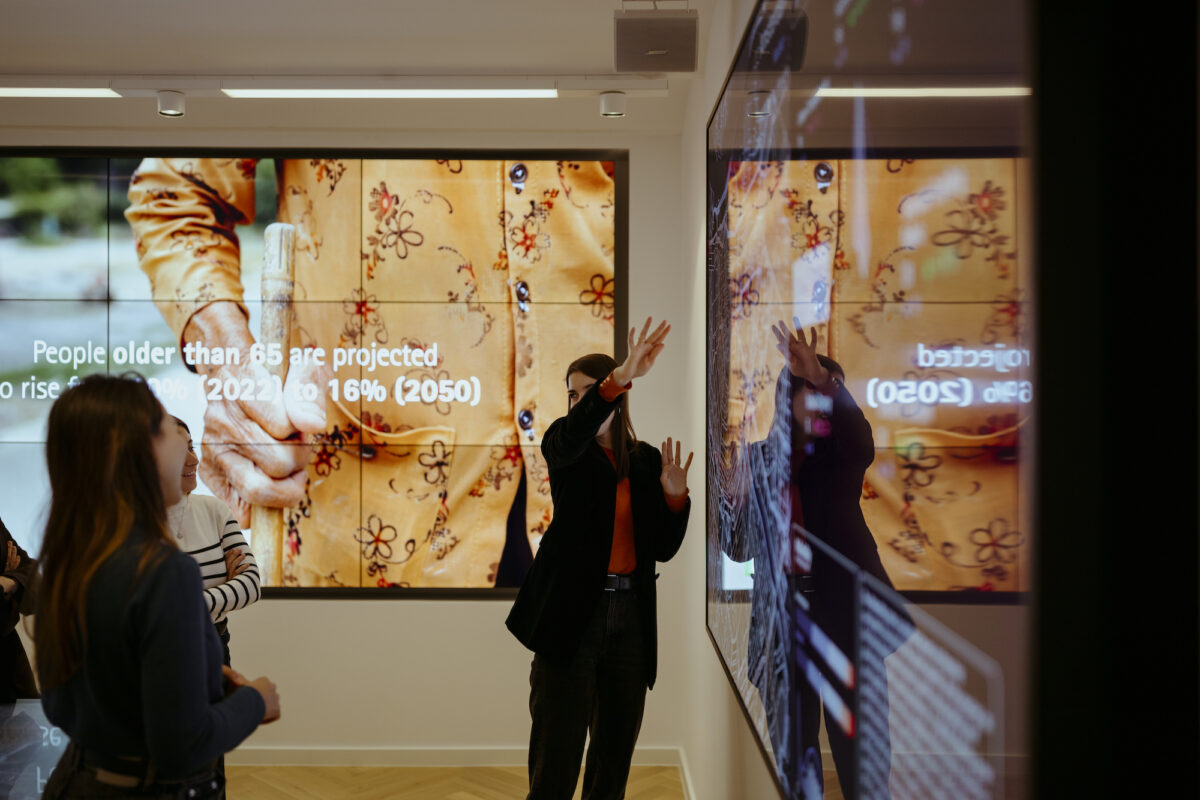
The Public Debates are free and open to the public. The public debate will be held in English without translation.
The Norman Foster Institute is a centre dedicated to promoting a sustainable and visionary approach to the development of cities worldwide.
The Programme combines practical on-site experience with academic input from the Norman Foster Foundation and Universidad Autónoma de Madrid’s network of international experts. The course begins with training tools and skills that can be used to address wide-ranging issues of cities. These could be applicable to cities all over the world, as well as informal settlements and suburbia.
Taking a multidisciplinary approach, the scholars will use the most up-to-date digital tools as part of the NFI City Lab, to allow them to explore, test and evaluate their interventions in the quest to improve a sustainable quality of life in cities. Scholars will develop skills in leadership, advocacy, communication, presentation, diagramming, mapping and the understanding and interpretation of data.
Towards the end of the year, the scholars will present their findings to the city administration. The lessons from these real-life experiences will be documented by film and other media, culminating in a public event. On the basis that historically cities learn from each other, it will be important for the scholars to explore the relevance of their conclusions in the wider context of global cities.
The focus of the course is to train scholars from different disciplines in the sustainable development of cities with strategies for the future. This will be achieved through hands-on fieldwork and community engagement, the use of advanced simulation tools and the incorporation of the Sustainable Development Goals (SDGs) into local action plans.
Through the development, testing and simulation of local action plans, scholars will propose and implement urban interventions that will improve the quality of life in three European cities: Athens, San Marino and Bilbao. In this first edition of the course, the cities will be European, although the methodical approach will be adaptable to cities worldwide, as well as informal settlements and suburbia.
The Norman Foster Institute has assembled an integrative team of professionals from different continents to provide a global vision and a broad spectrum of expertise for those seeking a holistic approach to the future design and management of cities. Norman Foster, President of the Norman Foster Foundation, and Kent Larson, Head of the City Science group at the Massachusetts Institute of Technology’s Media Lab, Co-Directors of the Programme on Sustainable Cities, will lead a body of distinguished global experts drawn from diverse backgrounds and disciplines.
About
The Norman Foster Foundation promotes interdisciplinary thinking and research to help new generations anticipate the future. The first mission of the Norman Foster Foundation is to make visible the centrality of architecture, infrastructure and urbanism for the betterment of society. To this end, the second mission is to encourage new thinking and research across traditional boundaries in order to help younger generations anticipate the challenges of future change. In particular, the Foundation speaks to those professionals who are concerned with the environment— architects, engineers, designers, urbanists, civic leaders, planners and artists. This is at the heart of the Foundation’s holistic approach to design and is ever more relevant as populations shift to cities. With the implications of climate change, robotics and artificial intelligence, sustainable design is not about fashion but about survival.
The Norman Foster Foundation operates from the United Kingdom, the United States and Spain with its headquarters based in Madrid. normanfosterfoundation.org
The Norman Foster Institute (NFI) is an initiative of the Norman Foster Foundation (NFF) addressed to those who wish, through practice or education, to improve the quality of life in cities worldwide. The creation of the NFI follows from the success of the NFF’s programme of workshops, bringing together experts from academia, practice and consulting to engage with top graduates from around the world. The NFI is aimed at unconventional thinkers seeking a holistic and multidisciplinary approach to the most pressing issues affecting our urban landscapes today.
